MercoPress. South Atlantic News Agency
Tag: Argentina IMF
-
Tuesday, November 26th 2019 - 09:52 UTC
New IMF head of mission in Argentina, as Macri prepares to step down from office
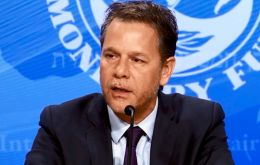
The International Monetary Fund has named as head of its mission in Argentina, Luis Cubeddu, 53, replacing Italian born Roberto Cardarelli. Cubeddu is knowledgeable in Argentina since he was in Buenos Aires between 2002/04, during a similar financial pre-default situation, as a member of the IMF representation.
-
Wednesday, November 20th 2019 - 09:56 UTC
Fernandez tells IMF, “we want to make a commitment that we can keep”
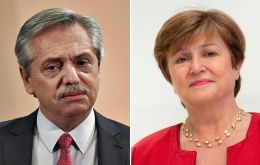
Argentina’s president-elect, Alberto Fernandez, has a “sustainable” plan to meet creditor obligations as well as maintain growth, he told the International Monetary Fund´s managing director Kristalina Georgieva, his office said.
-
Thursday, October 3rd 2019 - 08:52 UTC
The IMF after Argentina
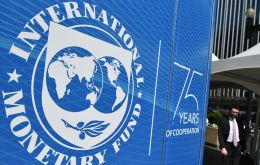
By Kenneth Rogoff (*) - It’s high time to ask how to refocus the International Monetary Fund’s mandate for dealing with emerging-market debt crises. How can the IMF be effective in helping countries regain access to private credit markets when any attempt to close unsustainable budget deficits is labeled austerity?
-
Thursday, September 26th 2019 - 09:56 UTC
Resumption of Argentina's financial program with IMF frozen... and “will have to wait”
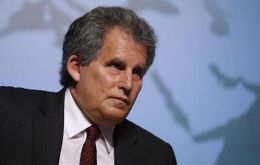
Argentina’s financial program with the International Monetary Fund (IMF) will be on hold for some time as the nation grapples with severe political and economic uncertainty, the Fund’s Acting Managing Director David Lipton said an interview.
-
Thursday, September 26th 2019 - 09:45 UTC
Lagarde defends IMF decision to support Argentina with a record credit

Christine Lagarde has defended the IMF decision to give Argentina a record credit line last year, even after the US$56-billion program fell short of stabilizing the nation’s troubled economy.
-
Monday, September 16th 2019 - 09:47 UTC
IMF choice: to unlock or not to unlock the last tranche of funds for Argentina

The International Monetary Fund has a tough choice to make in Argentina: unlock US$5.4 billion in funds under the country’s loan deal as the government strains to stave off default, or hold the money back and risk sparking more market panic.
-
Thursday, September 12th 2019 - 09:55 UTC
Questions on the role of the IMF in the Argentine financial situation

Despite a history of many IMF rescue programs, Argentina once again faces a deepening financial crisis, raising questions about whether the Washington-based lender made a mistake in its dealings with Latin America's third largest economy.
-
Monday, September 9th 2019 - 09:58 UTC
Argentine presidential candidate proposes “a national unity government”: 'option can't be bad or worse'
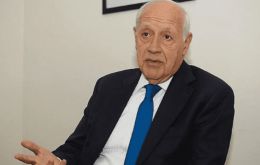
Argentine presidential candidate and ex Economy minister Roberto Lavagna said that the country needs “a national unity government” to overcome the current situation and it's no option having to choose between “bad and worse”.
-
Thursday, September 5th 2019 - 09:57 UTC
Argentine markets rebound, despite thousands of protestors in the streets
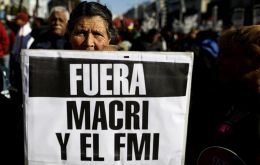
Argentine markets held steady on Wednesday, even as thousands of protesters took to the streets to demonstrate against the government of President Mauricio Macri and a darkening economic outlook in the recession-hit South American country.
-
Monday, September 2nd 2019 - 09:50 UTC
IMF supports Argentina and its temporary currency controls
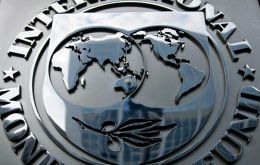
The International Monetary Fund said it will stand by Argentina after the government authorized currency controls on Sunday in an about-face by President Mauricio Macri, who had previously lifted many protectionist practices of his predecessor, Cristina Fernandez de Kirchner.
